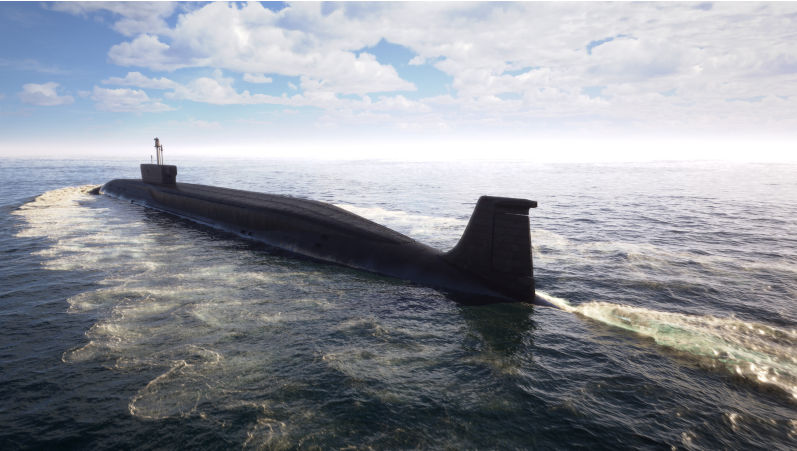Submarines are not instruments of peace: A Quaker’s response to Australia’s strategic obsession
April 13, 2025
Rear Admiral Peter Briggs’ recent defence of submarines offers a polished, strategic case for Australia’s continued investment in this kind of military hardware – especially nuclear-powered ones.
But beneath the surface of his argument lies a troubling worldview that must be challenged. As a staunch pacifist, I reject the logic that stealth, surveillance, and the capacity to strike without warning constitute a pathway to peace.
Briggs writes with authority and experience, and he believes sincerely in the mission of deterrence. But the foundation of his article is not peace – it is militarism dressed in technical jargon and strategic justification. This response seeks to expose the assumptions behind that view and offer an alternative vision based on transparency, diplomacy, and demilitarisation.
Submarines are celebrated by Briggs for their “stealth” – their ability to slip unnoticed into contested waters, gathering intelligence and, if necessary, launching missiles without “causing a diplomatic incident”. This framing is deeply problematic. It normalises the idea that violating another country’s sovereignty is acceptable so long as it is done quietly. In what world is covert military activity a peacekeeping measure?
True diplomacy requires trust, not hidden weapons. When we send submarines to observe or threaten, we deepen suspicion and accelerate arms races. If Australia were on the receiving end of such behaviour, we would rightly see it as a provocation. A peaceful world is not built on who can hide best.
The article presents submarines as benign observers – acoustic ears and electromagnetic eyes. But from a pacifist perspective, covert surveillance is never neutral. It is inherently adversarial. It implies the right to gather intelligence without consent, reinforcing a paradigm where might and technology override mutual respect and international norms.
At the heart of Briggs’ argument is the classic logic of deterrence: if we look fearsome enough, we’ll never have to fight. But history tells us otherwise. Military build-up often invites escalation, not restraint. Peace maintained through threat is not peace – it is tension in suspension.
The “security dilemma” is well known: when one state arms to feel secure, others do the same. Submarine programs — especially nuclear ones — are expensive, secretive, and destabilising. They send a message to the region that Australia is preparing not just to defend, but to strike.
Briggs cites the sinking of the Belgrano during the Falklands War as evidence of the effectiveness of submarines. More than 300 Argentine sailors died that day, many of them teenagers. That event is considered a war crime – a moral stain. Yet here it is invoked as a success story – a justification why Australia needs nuclear-powered attack submarines.
This is not how we build peace. We do not celebrate loss of life as “strategic advantage.” We grieve it. And we commit to never repeating it.
Submarines, we are told, offer unique abilities that other systems cannot match – not drones, not satellites, not surface ships. But this is just another chapter in the ever-evolving military-industrial playbook: justify the next platform by claiming the last one is insufficient. It is a treadmill of endless procurement, and it keeps peace always just out of reach.
The billions spent on submarines — especially nuclear ones — could instead fund diplomacy, disaster preparedness, climate action, and regional aid. These are the real stabilisers of our time.
Briggs frames submarines as essential because “Australia is an island” and “relies on the sea”. But being an island does not mean we must sink into a militarised worldview. It means we should lead in maritime co-operation, championing non-violence and disarmament in our region.
Security in the 21st century is not about hiding under the sea. It is about stepping onto the global stage as a nation committed to peace — not just in rhetoric, but in action. That means rejecting stealth warfare as a default strategy. It means seeing military capability as a failure of diplomacy, not a tool to support it.
We must imagine and fight for a different future — one in which Australia chooses transparency over stealth, diplomacy over dominance, and non-violence over endless escalation. Submarines may offer a strategic advantage. But they will never offer peace.
